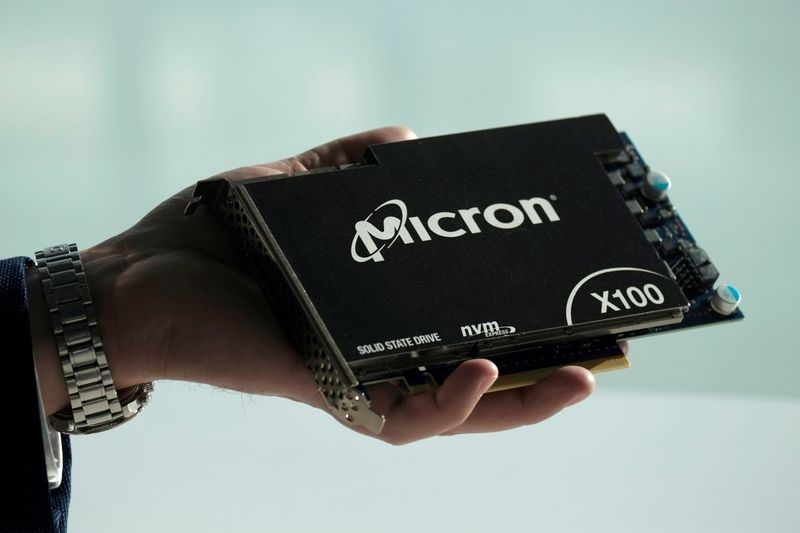BEIJING/SHANGHAI (Reuters) – China’s export controls on metals used in making semiconductors are “just a start”, an influential trade policy adviser said on Wednesday, as it ramps up a tech fight with the U.S. days before U.S. treasury secretary Janet Yellen visits Beijing.
Shares in some Chinese metals companies rallied for a second session, with investors betting that higher prices on gallium and germanium, which Beijing’s export restrictions target, could boost revenues.
Germanium is used in high-speed computer chips, plastics, and in military applications such as night-vision devices as well as satellite imagery sensors. Gallium is used in building radars and radio communication devices, satellites and LEDs.
China’s abrupt announcement of controls from Aug. 1 on exports of some gallium and germanium products, also used in electric vehicles (EVs) and fibre optic cables, has sent companies scrambling to secure supplies and bumped up prices.
Announced on the eve of U.S. Independence Day and just before Yellen’s planned visit to Beijing from Thursday, analysts said it was clearly timed to send a message to the Biden administration, which has been targeting China’s chip sector and pushing allies such as Japan and Netherlands to follow suit.
China’s move has also raised concerns on whether restrictions on rare earth exports could follow, they said, pointing to how it curbed shipments 12 years ago in a dispute with Japan. China is the world’s biggest producer of rare earths, a group of metals used in EVs and military equipment.
Analysts have described Monday’s move as China’s second, and so far the biggest, countermeasure in the long-running US-China tech fight, coming after it banned some key domestic industries from purchasing from U.S. memory chipmaker Micron (NASDAQ:) in May.
On Wednesday, former Vice Commerce Minister Wei Jianguo told the China Daily newspaper that countries should brace for more should they continue to pressure China, describing the controls as a “well-thought-out heavy punch” and “just a start”.
“If restrictions targeting China’s high-technology sector continue then countermeasures will escalate,” added Wei, who served as vice commerce minister in 2003-2008 and is now the vice chairman of state-backed think tank China Center for International Economic Exchanges.
The Global Times state media tabloid, in a separate editorial published late on Tuesday, said that it was a “practical way” of telling the U.S. and its allies that their efforts to curb China from procuring more advanced technology was a “miscalculation”.
The Chinese commerce ministry did not respond to a request for further comment.
CURBS ON EXPORTS TO CHINA
Washington is considering new restrictions on the shipment of high-tech microchips to China, following a series of curbs over the past few years.
The United States and the Netherlands are also expected to further restrict sales of chipmaking equipment to China, part of efforts to prevent their technology from being used by China’s military.
A day after China unveiled the curbs, Chinese President Xi Jinping repeated a call for “stable and smooth functioning of regional industrial and supply chains” in a virtual address to leaders attending the Shanghai Cooperation Organization summit, according to state media reports.
Shares in Chinese metals companies such as Yunnan Lincang Xinyuan Germanium Industry Co and Yunnan Chihong Zinc & Germanium Co surged for a second session on Wednesday, with local media reporting that a rise in germanium prices would boost revenue growth for the firms.
Gallium at 99.99% purity in China was trading at 1,775 yuan a kg on Tuesday, unchanged day-on-day, but up 6% week-on-week and 4% year-on-year, respectively, Shanghai Metal Exchange Market data on Refinitiv Eikon showed. It was, however, 46% lower from the same period a year ago.
China’s germanium ingot was priced at 9,150 yuan per kg on Tuesday, also flat on the day and on the week, Refinitiv data showed. It was down 4% month-on-month and up 4.6% year-on-year, respectively.
Read the full article here













